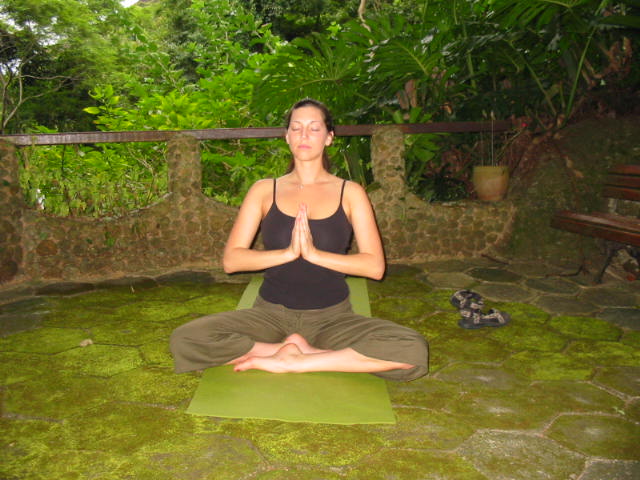The act of meditating may seem like some far flung Eastern practice that only shaman and lamas can practice with success. Nothing could be further from the truth. Yes, there are many benefits from meditating that spiritual leaders have enjoyed for thousands of years. But there are also a multitude of practical reasons why you…yes, you the one holding down a full time job, with kids and social obligations and the craziness of everyday life might want to learn to meditate as a skill to improve your over all heath and well-being.
I have first hand knowledge of how profound the benefits can be. I spent the majority of my life being an over-achiever and spinning out mentally. Mental rest was a joke. I always had to be “accomplishing” something. Sound familiar? Who are we if not defined by our mental checklists and internal problem solving? However, what I was missing was the idea that I could be far more efficient, calm and peaceful by the simple act of allowing my mind to rest a little each day. Meditation in its simplest form is rest for the mind. It allows you to recharge and reconnect and assists you in finding clarity about what is actually important in your life.
And now mainstream medicine is seeing the benefits of this age old practice. Research has told us that meditating reduces stress to such a point that it can lower our blood pressure, reduce anxiety attacks by lowering blood lactate, and increase serotonin levels in the brain. Low serotonin is related to depression, headaches and insomnia. It can reduce heart disease and assist in weight loss. Other benefits that have been studied include the positive effect of meditation on the mind in general. It can build confidence levels, help us feel more energetic, and improve concentration.
As a mental health professional, I often get asked what pill people should take or what program they should buy into if they want to increase their health and overall well being. I chuckle and usually say it is much simpler and cheaper. In fact it is free. Meditation truly is the first thing I recommend to most people because anyone can do it, anywhere – even five minutes a day can benefit most of us. It is incredibly accessible, regardless of age, physical ability or spiritual affiliation. It is the best tool I can suggest for people during the course of therapy.
There are many different ways to practice meditation as well. It may be a matter of focusing how your body feels in the moment, following your breath, repeating a mantra/affirmation or just blanking your mind out. Formal meditation practices are great but the best practice is the one you can employ while standing at the check out in the grocery store or right before bed to help you sleep.
Meditation may have started thousands of years ago but it is becoming more and more important in today’s world. With television, computers, smart phones and the overall hectic nature of everyday life we need it now more than ever.
